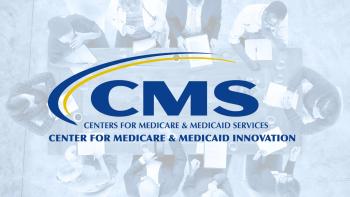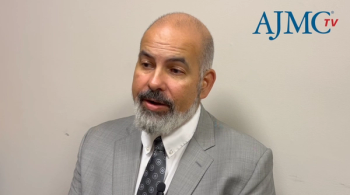
Value-Based Care
Latest News
Latest Videos

Podcasts
CME Content
More News

The AMCP Nexus 2025 conference will bring together professionals to discuss drug access and policy, as well as the future of pharmacy.

Elinzanetant offers a promising alternative to hormone therapy for women seeking relief from menopause symptoms, said JoAnn V. Pinkerton, MD.

Remote monitoring and algorithm-based tools help pharmacists balance complex workloads in value-based care, says Lindsey Valenzuela, PharmD.

Measures need to be taken to elevate engagement both from employees and the general public as public confidence in the US health care system declines.

Lindsey Valenzuela, PharmD, explains how value-based models empower a single pharmacist to manage multiple layers of these disease states.

Despite systemic challenges, oncology practices use value-based care, community partnerships, and clinical trials to improve patient access and outcomes, says Brian Mulherin, MD.

UC Davis Health enhances patient care through a shared services center, ensuring continuity of care and optimizing pharmacy growth strategies.

Robert Andrews, CEO of the Health Transformation Alliance, addresses Medicaid rebates, cost-shifting concerns, and value-based pricing trends.

Patients with chronic kidney disease (CKD) stages 3b or 4 experienced slower decline in estimated glomerular filtration rate 20 months after enrollment in a value-based kidney care program.

Explore cutting-edge discussions on patient-centered oncology, value-based care, AI innovations, and survivorship strategies Thursday and Friday at PCOC 2025 in Nashville.

On July 9, 2025, experts from across Providence Health & Services gathered in Garden Grove, California, for in-depth discussions on patient-centered care for chronic diseases.

Community oncology leaders navigate challenges in value-based care under the Enhancing Oncology Model, facing performance payment uncertainties and evolving drug markets.

Matias Sanchez, MD, a hematologist-oncologist at University of Illinois Health, discussed the latest advancements in value-based multiple myeloma care, including minimal residual disease strategies and innovative targeted therapies.

Jorge Nieva, MD, explores the challenges of translating biomarker testing into treatment decisions for non–small cell lung cancer (NSCLC), the role of repeat testing in detecting resistance mutations, and the importance of equitable access to molecular diagnostics in value-based care settings.


Explore how payers and providers collaborate to enhance value-based care, tackle rising costs, and improve patient outcomes in today's health care landscape.

Health systems must prepare for the growing impact of cell and gene therapies by addressing their high costs, complex care pathways, and payer collaboration needs to ensure timely and sustainable patient access.

Given the track record of good outcomes and savings, policy leaders must do more to promote growth of for-profit PACE programs, the author asserts.

More large employers with high-deductible health plans with health savings accounts offer preventive drug list benefits over time.

In this second part of his interview with The American Journal of Managed Care®, Sanjay Doddamani, MD, MBA, a former senior advisor to CMMI and founder and CEO of Guidehealth, continues a dialogue on the future of value-based care and the promise—and limits—of AI-enabled innovation, reflecting on challenges like rising Medicare costs and patients’ growing financial burdens.

A meta-analysis showed that control group outcomes in psilocybin trials for depression were significantly weaker than those in selective serotonin reuptake inhibitor (SSRI) and esketamine trials, suggesting that psilocybin’s large observed treatment effects may be inflated by methodological factors such as functional unblinding and expectancy bias.

A significant number of patients with cancer, caregivers, and health care professionals face significant disparities in legal issues, with the most common needs revolving around health insurance, finances, employment, and disability insurance.

This study examined the impact of price transparency and prosocial messaging on patient engagement of price-protected consumers in seeking value-based care.

Ambulatory clinical pharmacists improve patient outcomes and reduce health care costs by providing hands-on chronic disease management, patient education, and medication cost oversight, according to Caroline Vovan, PharmD, CDE.

Caroline Vovan, PharmD, CDE, highlights how ambulatory clinical pharmacists contribute to value-based care by managing chronic conditions, improving medication adherence, and reducing costs.
























